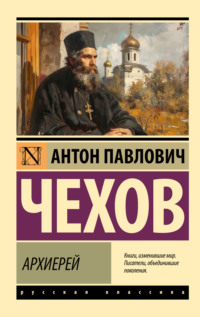 полная версия
полная версияLove and Other Stories
"There's a candle on the table."
I lighted the candle and stood still in the middle of the room not knowing what to do next. I stood and looked at the man on the floor, and it seemed to me that I had seen him before.
"The pain is insufferable," he whispered, "and I haven't the strength to shoot myself again. Incomprehensible lack of will."
I flung off my overcoat and attended to the sick man. Lifting him from the floor like a baby, I laid him on the American-leather covered sofa and carefully undressed him. He was shivering and cold when I took off his clothes; the wound which I saw was not in keeping either with his shivering nor the expression on his face. It was a trifling one. The bullet had passed between the fifth and sixth ribs on the left side, only piercing the skin and the flesh. I found the bullet itself in the folds of the coat-lining near the back pocket. Stopping the bleeding as best I could and making a temporary bandage of a pillow-case, a towel, and two handkerchiefs, I gave the wounded man some water and covered him with a fur coat that was hanging in the passage. We neither of us said a word while the bandaging was being done. I did my work while he lay motionless looking at me with his eyes screwed up as though he were ashamed of his unsuccessful shot and the trouble he was giving me.
"Now I must trouble you to lie still," I said, when I had finished the bandaging, "while I run to the chemist and get something."
"No need!" he muttered, clutching me by the sleeve and opening his eyes wide.
I read terror in his eyes. He was afraid of my going away.
"No need! Stay another five minutes.. ten. If it doesn't disgust you, do stay, I entreat you."
As he begged me he was trembling and his teeth were chattering. I obeyed, and sat down on the edge of the sofa. Ten minutes passed in silence. I sat silent, looking about the room into which fate had brought me so unexpectedly. What poverty! This man who was the possessor of a handsome, effeminate face and a luxuriant well-tended beard, had surroundings which a humble working man would not have envied. A sofa with its American-leather torn and peeling, a humble greasy-looking chair, a table covered with a little of paper, and a wretched oleograph on the wall, that was all I saw. Damp, gloomy, and grey.
"What a wind!" said the sick man, without opening his eyes, "How it whistles!"
"Yes," I said. "I say, I fancy I know you. Didn't you take part in some private theatricals in General Luhatchev's villa last year?"
"What of it?" he asked, quickly opening his eyes.
A cloud seemed to pass over his face.
"I certainly saw you there. Isn't your name Vassilyev?"
"If it is, what of it? It makes it no better that you should know me."
"No, but I just asked you."
Vassilyev closed his eyes and, as though offended, turned his face to the back of the sofa.
"I don't understand your curiosity," he muttered. "You'll be asking me next what it was drove me to commit suicide!"
Before a minute had passed, he turned round towards me again, opened his eyes and said in a tearful voice:
"Excuse me for taking such a tone, but you'll admit I'm right! To ask a convict how he got into prison, or a suicide why he shot himself is not generous.. and indelicate. To think of gratifying idle curiosity at the expense of another man's nerves!"
"There is no need to excite yourself… It never occurred to me to question you about your motives."
"You would have asked… It's what people always do. Though it would be no use to ask. If I told you, you would not believe or understand… I must own I don't understand it myself… There are phrases used in the police reports and newspapers such as: 'unrequited love,' and 'hopeless poverty,' but the reasons are not known… They are not known to me, nor to you, nor to your newspaper offices, where they have the impudence to write 'The diary of a suicide.' God alone understands the state of a man's soul when he takes his own life; but men know nothing about it."
"That is all very nice," I said, "but you oughtn't to talk.."
But my suicide could not be stopped, he leaned his head on his fist, and went on in the tone of some great professor:
"Man will never understand the psychological subtleties of suicide! How can one speak of reasons? To-day the reason makes one snatch up a revolver, while to-morrow the same reason seems not worth a rotten egg. It all depends most likely on the particular condition of the individual at the given moment… Take me for instance. Half an hour ago, I had a passionate desire for death, now when the candle is lighted, and you are sitting by me, I don't even think of the hour of death. Explain that change if you can! Am I better off, or has my wife risen from the dead? Is it the influence of the light on me, or the presence of an outsider?"
"The light certainly has an influence." I muttered for the sake of saying something. "The influence of light on the organism.."
"The influence of light… We admit it! But you know men do shoot themselves by candle-light! And it would be ignominious indeed for the heroes of your novels if such a trifling thing as a candle were to change the course of the drama so abruptly. All this nonsense can be explained perhaps, but not by us. It's useless to ask questions or give explanations of what one does not understand.."
"Forgive me," I said, "but.. judging by the expression of your face, it seems to me that at this moment you.. are posing."
"Yes," Vassilyev said, startled. "It's very possible! I am naturally vain and fatuous. Well, explain it, if you believe in your power of reading faces! Half an hour ago I shot myself, and just now I am posing… Explain that if you can."
These last words Vassilyev pronounced in a faint, failing voice. He was exhausted, and sank into silence. A pause followed. I began scrutinising his face. It was as pale as a dead man's. It seemed as though life were almost extinct in him, and only the signs of the suffering that the "vain and fatuous" man was feeling betrayed that it was still alive. It was painful to look at that face, but what must it have been for Vassilyev himself who yet had the strength to argue and, if I were not mistaken, to pose?
"You here – are you here?" he asked suddenly, raising himself on his elbow. "My God, just listen!"
I began listening. The rain was pattering angrily on the dark window, never ceasing for a minute. The wind howled plaintively and lugubriously.
"'And I shall be whiter than snow, and my ears will hear gladness and rejoicing.'" Madame Mimotih, who had returned, was reading in the drawing-room in a languid, weary voice, neither raising nor dropping the monotonous dreary key.
"It is cheerful, isn't it?" whispered Vassilyev, turning his frightened eyes towards me. "My God, the things a man has to see and hear! If only one could set this chaos to music! As Hamlet says, 'it would —
"Confound the ignorant, and amaze indeed,
The very faculties of eyes and ears."
How well I should have understood that music then! How I should have felt it! What time is it?"
"Five minutes to three."
"Morning is still far off. And in the morning there's the funeral. A lovely prospect! One follows the coffin through the mud and rain. One walks along, seeing nothing but the cloudy sky and the wretched scenery. The muddy mutes, taverns, woodstacks… One's trousers drenched to the knees. The never-ending streets. The time dragging out like eternity, the coarse people. And on the heart a stone, a stone!"
After a brief pause he suddenly asked: "Is it long since you saw
General Luhatchev?"
"I haven't seen him since last summer."
"He likes to be cock of the walk, but he is a nice little old chap.
And are you still writing?"
"Yes, a little."
"Ah… Do you remember how I pranced about like a needle, like an enthusiastic ass at those private theatricals when I was courting Zina? It was stupid, but it was good, it was fun… The very memory of it brings back a whiff of spring… And now! What a cruel change of scene! There is a subject for you! Only don't you go in for writing 'the diary of a suicide.' That's vulgar and conventional. You make something humorous of it."
"Again you are.. posing," I said. "There's nothing humorous in your position."
"Nothing laughable? You say nothing laughable?" Vassilyev sat up, and tears glistened in his eyes. An expression of bitter distress came into his pale face. His chin quivered.
"You laugh at the deceit of cheating clerks and faithless wives," he said, "but no clerk, no faithless wife has cheated as my fate has cheated me! I have been deceived as no bank depositor, no duped husband has ever been deceived! Only realise what an absurd fool I have been made! Last year before your eyes I did not know what to do with myself for happiness. And now before your eyes.."
Vassilyev's head sank on the pillow and he laughed.
"Nothing more absurd and stupid than such a change could possibly be imagined. Chapter one: spring, love, honeymoon.. honey, in fact; chapter two: looking for a job, the pawnshop, pallor, the chemist's shop, and.. to-morrow's splashing through the mud to the graveyard."
He laughed again. I felt acutely uncomfortable and made up my mind to go.
"I tell you what," I said, "you lie down, and I will go to the chemist's."
He made no answer. I put on my great-coat and went out of his room. As I crossed the passage I glanced at the coffin and Madame Mimotih reading over it. I strained my eyes in vain, I could not recognise in the swarthy, yellow face Zina, the lively, pretty ingénue of Luhatchev's company.
"Sic transit," I thought.
With that I went out, not forgetting to take the revolver, and made my way to the chemist's. But I ought not to have gone away. When I came back from the chemist's, Vassilyev lay on the sofa fainting. The bandages had been roughly torn off, and blood was flowing from the reopened wound. It was daylight before I succeeded in restoring him to consciousness. He was raving in delirium, shivering, and looking with unseeing eyes about the room till morning had come, and we heard the booming voice of the priest as he read the service over the dead.
When Vassilyev's rooms were crowded with old women and mutes, when the coffin had been moved and carried out of the yard, I advised him to remain at home. But he would not obey me, in spite of the pain and the grey, rainy morning. He walked bareheaded and in silence behind the coffin all the way to the cemetery, hardly able to move one leg after the other, and from time to time clutching convulsively at his wounded side. His face expressed complete apathy. Only once when I roused him from his lethargy by some insignificant question he shifted his eyes over the pavement and the grey fence, and for a moment there was a gleam of gloomy anger in them.
"'Weelright,'" he read on a signboard. "Ignorant, illiterate people, devil take them!"
I led him home from the cemetery.
—
Only one year has passed since that night, and Vassilyev has hardly had time to wear out the boots in which he tramped through the mud behind his wife's coffin.
At the present time as I finish this story, he is sitting in my drawing-room and, playing on the piano, is showing the ladies how provincial misses sing sentimental songs. The ladies are laughing, and he is laughing too. He is enjoying himself.
I call him into my study. Evidently not pleased at my taking him from agreeable company, he comes to me and stands before me in the attitude of a man who has no time to spare. I give him this story, and ask him to read it. Always condescending about my authorship, he stifles a sigh, the sigh of a lazy reader, sits down in an armchair and begins upon it.
"Hang it all, what horrors," he mutters with a smile.
But the further he gets into the reading, the graver his face becomes. At last, under the stress of painful memories, he turns terribly pale, he gets up and goes on reading as he stands. When he has finished he begins pacing from corner to corner.
"How does it end?" I ask him.
"How does it end? H'm.."
He looks at the room, at me, at himself… He sees his new fashionable suit, hears the ladies laughing and.. sinking on a chair, begins laughing as he laughed on that night.
"Wasn't I right when I told you it was all absurd? My God! I have had burdens to bear that would have broken an elephant's back; the devil knows what I have suffered – no one could have suffered more, I think, and where are the traces? It's astonishing. One would have thought the imprint made on a man by his agonies would have been everlasting, never to be effaced or eradicated. And yet that imprint wears out as easily as a pair of cheap boots. There is nothing left, not a scrap. It's as though I hadn't been suffering then, but had been dancing a mazurka. Everything in the world is transitory, and that transitoriness is absurd! A wide field for humorists! Tack on a humorous end, my friend!"
"Pyotr Nikolaevitch, are you coming soon?" The impatient ladies call my hero.
"This minute," answers the "vain and fatuous" man, setting his tie straight. "It's absurd and pitiful, my friend, pitiful and absurd, but what's to be done? Homo sum… And I praise Mother Nature all the same for her transmutation of substances. If we retained an agonising memory of toothache and of all the terrors which every one of us has had to experience, if all that were everlasting, we poor mortals would have a bad time of it in this life."
I look at his smiling face and I remember the despair and the horror with which his eyes were filled a year ago when he looked at the dark window. I see him, entering into his habitual rôle of intellectual chatterer, prepare to show off his idle theories, such as the transmutation of substances before me, and at the same time I recall him sitting on the floor in a pool of blood with his sick imploring eyes.
"How will it end?" I ask myself aloud.
Vassilyev, whistling and straightening his tie, walks off into the drawing-room, and I look after him, and feel vexed. For some reason I regret his past sufferings, I regret all that I felt myself on that man's account on that terrible night. It is as though I had lost something..
MARI D'ELLE
IT was a free night. Natalya Andreyevna Bronin (her married name was Nikitin), the opera singer, is lying in her bedroom, her whole being abandoned to repose. She lies, deliciously drowsy, thinking of her little daughter who lives somewhere far away with her grandmother or aunt… The child is more precious to her than the public, bouquets, notices in the papers, adorers.. and she would be glad to think about her till morning. She is happy, at peace, and all she longs for is not to be prevented from lying undisturbed, dozing and dreaming of her little girl.
All at once the singer starts, and opens her eyes wide: there is a harsh abrupt ring in the entry. Before ten seconds have passed the bell tinkles a second time and a third time. The door is opened noisily and some one walks into the entry stamping his feet like a horse, snorting and puffing with the cold.
"Damn it all, nowhere to hang one's coat!" the singer hears a husky bass voice. "Celebrated singer, look at that! Makes five thousand a year, and can't get a decent hat-stand!"
"My husband!" thinks the singer, frowning. "And I believe he has brought one of his friends to stay the night too… Hateful!"
No more peace. When the loud noise of some one blowing his nose and putting off his goloshes dies away, the singer hears cautious footsteps in her bedroom… It is her husband, mari d'elle, Denis Petrovitch Nikitin. He brings a whiff of cold air and a smell of brandy. For a long while he walks about the bedroom, breathing heavily, and, stumbling against the chairs in the dark, seems to be looking for something..
"What do you want?" his wife moans, when she is sick of his fussing about. "You have woken me."
"I am looking for the matches, my love. You.. you are not asleep then? I have brought you a message… Greetings from that.. what's-his-name?.. red-headed fellow who is always sending you bouquets… Zagvozdkin… I have just been to see him."
"What did you go to him for?"
"Oh, nothing particular… We sat and talked and had a drink. Say what you like, Nathalie, I dislike that individual – I dislike him awfully! He is a rare blockhead. He is a wealthy man, a capitalist; he has six hundred thousand, and you would never guess it. Money is no more use to him than a radish to a dog. He does not eat it himself nor give it to others. Money ought to circulate, but he keeps tight hold of it, is afraid to part with it… What's the good of capital lying idle? Capital lying idle is no better than grass."
Mari d'elle gropes his way to the edge of the bed and, puffing, sits down at his wife's feet.
"Capital lying idle is pernicious," he goes on. "Why has business gone downhill in Russia? Because there is so much capital lying idle among us; they are afraid to invest it. It's very different in England… There are no such queer fish as Zagvozdkin in England, my girl… There every farthing is in circulation.. Yes… They don't keep it locked up in chests there.."
"Well, that's all right. I am sleepy."
"Directly… Whatever was it I was talking about? Yes… In these hard times hanging is too good for Zagvozdkin… He is a fool and a scoundrel… No better than a fool. If I asked him for a loan without security – why, a child could see that he runs no risk whatever. He doesn't understand, the ass! For ten thousand he would have got a hundred. In a year he would have another hundred thousand. I asked, I talked.. but he wouldn't give it me, the blockhead."
"I hope you did not ask him for a loan in my name."
"H'm… A queer question.." Mari d'elle is offended. "Anyway he would sooner give me ten thousand than you. You are a woman, and I am a man anyway, a business-like person. And what a scheme I propose to him! Not a bubble, not some chimera, but a sound thing, substantial! If one could hit on a man who would understand, one might get twenty thousand for the idea alone! Even you would understand if I were to tell you about it. Only you.. don't chatter about it.. not a word.. but I fancy I have talked to you about it already. Have I talked to you about sausage-skins?"
"M'm.. by and by."
"I believe I have… Do you see the point of it? Now the provision shops and the sausage-makers get their sausage-skins locally, and pay a high price for them. Well, but if one were to bring sausage-skins from the Caucasus where they are worth nothing, and where they are thrown away, then.. where do you suppose the sausage-makers would buy their skins, here in the slaughterhouses or from me? From me, of course! Why, I shall sell them ten times as cheap! Now let us look at it like this: every year in Petersburg and Moscow and in other centres these same skins would be bought to the.. to the sum of five hundred thousand, let us suppose. That's the minimum. Well, and if.."
"You can tell me to-morrow.. later on.."
"Yes, that's true. You are sleepy, pardon, I am just going.. say what you like, but with capital you can do good business everywhere, wherever you go… With capital even out of cigarette ends one may make a million… Take your theatrical business now. Why, for example, did Lentovsky come to grief? It's very simple. He did not go the right way to work from the very first. He had no capital and he went headlong to the dogs… He ought first to have secured his capital, and then to have gone slowly and cautiously.. Nowadays, one can easily make money by a theatre, whether it is a private one or a people's one… If one produces the right plays, charges a low price for admission, and hits the public fancy, one may put a hundred thousand in one's pocket the first year… You don't understand, but I am talking sense… You see you are fond of hoarding capital; you are no better than that fool Zagvozdkin, you heap it up and don't know what for… You won't listen, you don't want to… If you were to put it into circulation, you wouldn't have to be rushing all over the place.. You see for a private theatre, five thousand would be enough for a beginning… Not like Lentovsky, of course, but on a modest scale in a small way. I have got a manager already, I have looked at a suitable building… It's only the money I haven't got… If only you understood things you would have parted with your Five per cents.. your Preference shares.."
"No, merci… You have fleeced me enough already… Let me alone, I have been punished already.."
"If you are going to argue like a woman, then of course." sighs
Nikitin, getting up. "Of course.."
"Let me alone… Come, go away and don't keep me awake..
I am sick of listening to your nonsense."
"H'm… To be sure.. of course! Fleeced.. plundered..
What we give we remember, but we don't remember what we take."
"I have never taken anything from you."
"Is that so? But when we weren't a celebrated singer, at whose expense did we live then? And who, allow me to ask, lifted you out of beggary and secured your happiness? Don't you remember that?"
"Come, go to bed. Go along and sleep it off."
"Do you mean to say you think I am drunk?.. if I am so low in the eyes of such a grand lady.. I can go away altogether."
"Do. A good thing too."
"I will, too. I have humbled myself enough. And I will go."
"Oh, my God! Oh, do go, then! I shall be delighted!"
"Very well, we shall see."
Nikitin mutters something to himself, and, stumbling over the chairs, goes out of the bedroom. Then sounds reach her from the entry of whispering, the shuffling of goloshes and a door being shut. Mari d'elle has taken offence in earnest and gone out.
"Thank God, he has gone!" thinks the singer. "Now I can sleep."
And as she falls asleep she thinks of her mari d'elle, what sort of a man he is, and how this affliction has come upon her. At one time he used to live at Tchernigov, and had a situation there as a book-keeper. As an ordinary obscure individual and not the mari d'elle, he had been quite endurable: he used to go to his work and take his salary, and all his whims and projects went no further than a new guitar, fashionable trousers, and an amber cigarette-holder. Since he had become "the husband of a celebrity" he was completely transformed. The singer remembered that when first she told him she was going on the stage he had made a fuss, been indignant, complained to her parents, turned her out of the house. She had been obliged to go on the stage without his permission. Afterwards, when he learned from the papers and from various people that she was earning big sums, he had 'forgiven her,' abandoned book-keeping, and become her hanger-on. The singer was overcome with amazement when she looked at her hanger-on: when and where had he managed to pick up new tastes, polish, and airs and graces? Where had he learned the taste of oysters and of different Burgundies? Who had taught him to dress and do his hair in the fashion and call her 'Nathalie' instead of Natasha?"
"It's strange," thinks the singer. "In old days he used to get his salary and put it away, but now a hundred roubles a day is not enough for him. In old days he was afraid to talk before schoolboys for fear of saying something silly, and now he is overfamiliar even with princes.. wretched, contemptible little creature!"
But then the singer starts again; again there is the clang of the bell in the entry. The housemaid, scolding and angrily flopping with her slippers, goes to open the door. Again some one comes in and stamps like a horse.
"He has come back!" thinks the singer. "When shall I be left in peace? It's revolting!" She is overcome by fury.
"Wait a bit… I'll teach you to get up these farces! You shall go away. I'll make you go away!"
The singer leaps up and runs barefoot into the little drawing-room where her mari usually sleeps. She comes at the moment when he is undressing, and carefully folding his clothes on a chair.
"You went away!" she says, looking at him with bright eyes full of hatred. "What did you come back for?"
Nikitin remains silent, and merely sniffs.
"You went away! Kindly take yourself off this very minute! This very minute! Do you hear?"
Mari d'elle coughs and, without looking at his wife, takes off his braces.









